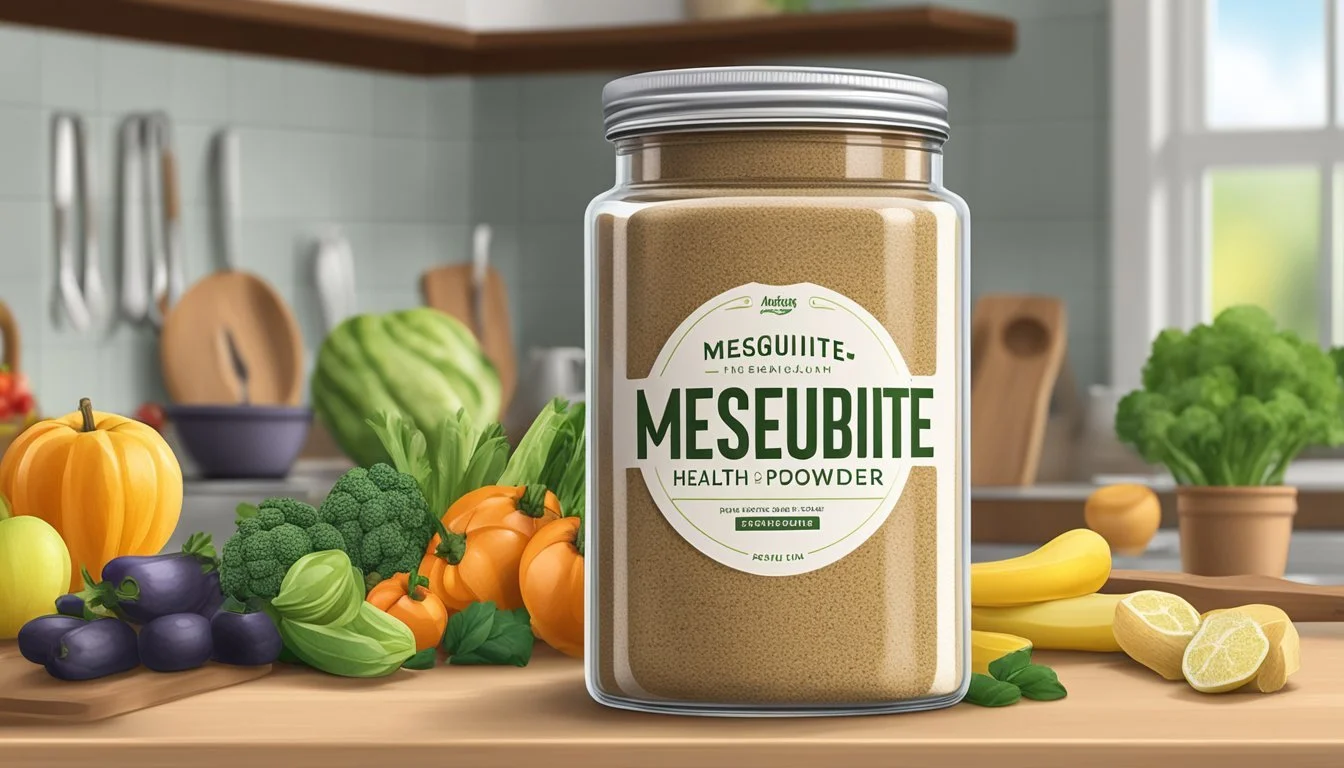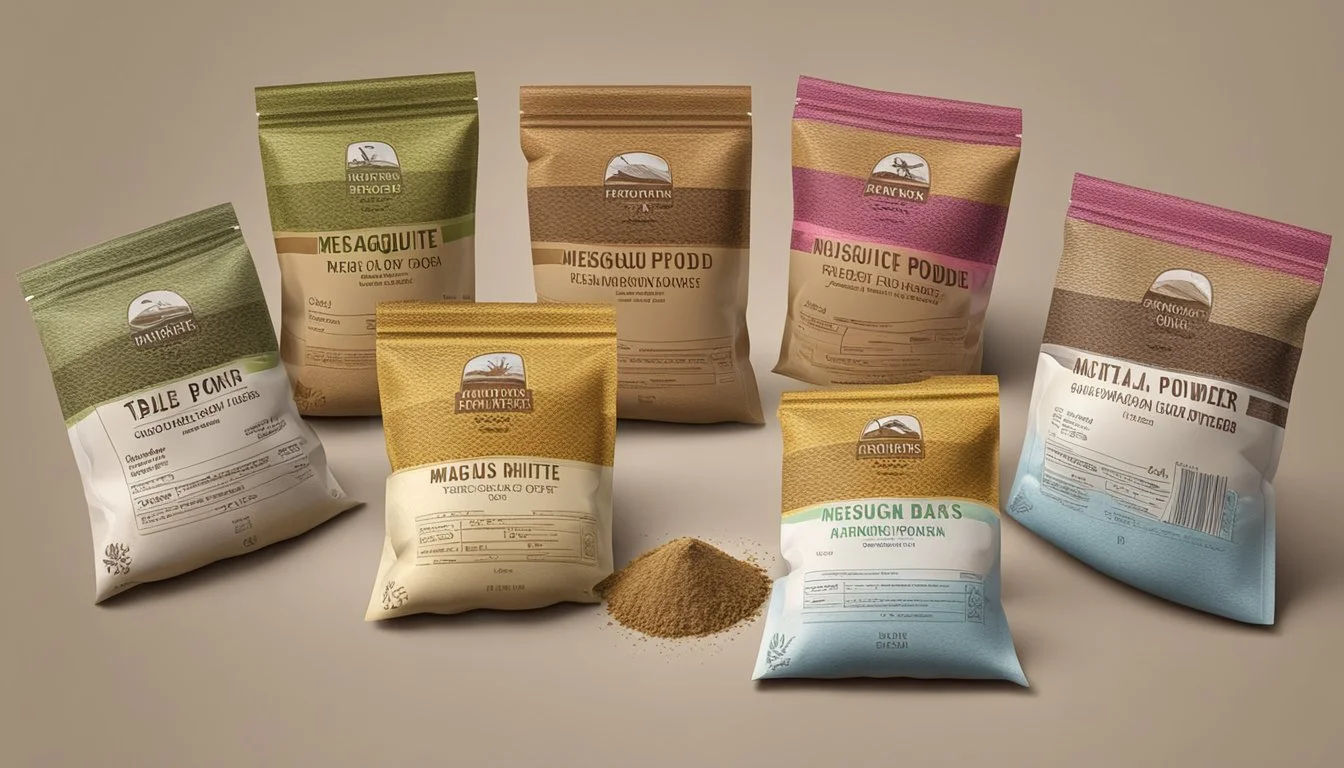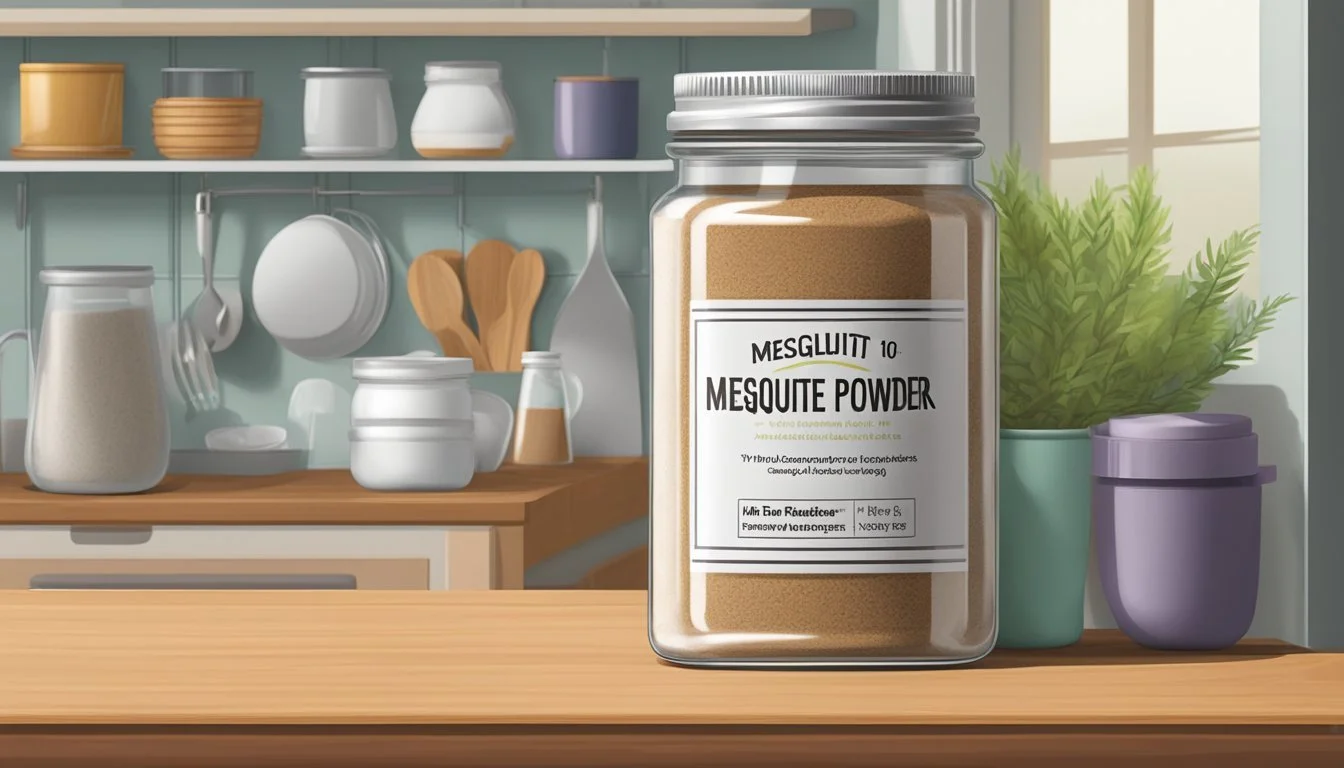How Long Does Mesquite Powder Last?
Shelf Life and Storage Tips
Mesquite powder, derived from the pods of the mesquite tree, is a nutritious superfood that offers a host of health benefits. Rich in nutrients like potassium, iron, calcium, magnesium, and zinc, mesquite powder is a sweet-tasting addition to a variety of dishes and baked goods. Its ability to enhance flavors while contributing beneficial minerals and fiber makes it a popular choice for health-conscious individuals.
Storing mesquite powder correctly is key to preserving its quality and extending its shelf life. When kept in a cool, dry place away from direct sunlight and in an airtight container, mesquite powder can retain its freshness for up to six months. Proper storage ensures that the nutritional benefits, as well as the flavor profile of mesquite powder, remain intact for use in cooking and baking applications.
Understanding Mesquite Powder
Mesquite powder originates from the seed pods of the mesquite tree, a plant species in the Prosopis genus. This legume is a staple in arid regions such as the Southwestern United States and parts of South America. Mesquite trees produce pods that can be ground into a fine powder.
The powder is known for its impressive nutrient profile. It contains notable amounts of protein and fiber, which contribute to feelings of fullness and support digestive health. Moreover, mesquite powder provides essential minerals such as iron, calcium, magnesium, and zinc. These minerals are crucial for various bodily functions, including bone health and immunity.
From a dietary perspective, mesquite's high lysine, an important amino acid, is significant. This amino acid is often lacking in plant-based diets and is essential for protein synthesis and hormone production.
Mesquite powder is often used as a sweetener due to its naturally sweet flavor. Its glycemic index is low, which makes it a favorable option for managing blood sugar levels. The powder's taste is described as rich and mildly sweet, with a hint of caramel, making it versatile for both sweet and savory dishes.
Here is a quick breakdown of its nutritional content per 100 grams:
Protein: Essential for muscle repair and growth
Fiber: Aids in digestion and promotes satiety
Iron: Necessary for oxygen transport in the blood
Calcium: Vital for healthy bones and teeth
Magnesium: Supports nerve function and muscle relaxation
Zinc: Crucial for immune system function
Given its robust nutrient composition and savory-sweet flavor profile, mesquite powder serves as a nutritious addition to a variety of recipes while catering to specific dietary needs.
Shelf Life Overview
Mesquite powder, also known as mesquite flour, generally exhibits a commendable shelf life when stored under appropriate conditions. It is the ground product of the dried seed pods of the mesquite tree, known for its sweet and nutty flavor. The powder is hygroscopic, meaning it can absorb moisture from the environment, which poses a risk for spoilage if not stored correctly.
Storage Conditions:
Container: An airtight container is crucial to prevent moisture and air from compromising the quality of the mesquite flour.
Location: A cupboard with a consistent cool temperature away from direct sunlight is the ideal location for storage.
Expected Shelf Life:
Storage Condition Shelf Life Airtight container, cupboard 1 - 2 years
After opening, mesquite flour should be used within several months for optimal freshness. They should monitor for signs of spoilage such as a change in smell or the presence of mold, which indicates that the powder is no longer suitable for consumption.
By taking into account the hygroscopic nature of mesquite powder and ensuring that it is stored in a dry, cool place within an airtight container, individuals can maximize the shelf life and maintain the quality of the product.
Factors Affecting Freshness
The longevity of mesquite powder is influenced by several key factors, which if optimized, can significantly extend its shelf life and maintain its quality.
Packaging
Proper packaging is critical for maintaining the freshness of mesquite powder. Products that are sealed in airtight containers are better protected from external factors that can lead to spoilage. Ideally, mesquite powder should be packaged in materials that provide a barrier against moisture and air, since oxygen can speed up the degradation process.
Storage Conditions
The conditions under which mesquite powder is stored play a pivotal role in its shelf life. To ensure maximum freshness, it should be stored in a cool and dry place. Temperature fluctuations and exposure to heat can affect the powder's flavour and potency. Avoiding direct light exposure is also advisable, as light can cause the nutrients in mesquite powder to break down over time.
Environmental Humidity
Humidity is a particularly important environmental factor, as high levels of moisture in the air can lead to clumping and potential mold growth in mesquite powder. The recommended storage environment is one with low humidity levels. Keeping mesquite powder in an environment with controlled humidity can help ensure that its quality remains intact for as long as possible.
Signs of Spoilage
When it comes to mesquite powder, certain telltale signs can indicate spoilage. The consumer should meticulously examine the powder for any visual or olfactory indicators that it is no longer suitable for consumption.
Color Changes
A noticeable change in the color of mesquite powder may suggest spoilage. Fresh, viable mesquite powder typically has a uniform, earthy hue. Any discoloration, such as darker spots or faded areas, should raise concerns. These changes might indicate the presence of mold or degradation of the product.
Odor
Mesquite powder should have a pleasant, slightly sweet smell indicative of its natural qualities. The presence of an off-odor — a smell that deviates from its original scent, potentially musty or sour — is a clear sign of spoilage. Such an odor is a strong indicator that the powder should not be used.
Clumping
Lastly, the physical texture of mesquite powder can reveal if it has been compromised. Ideal mesquite powder is fine and free-flowing. However, clumping or caking suggests the powder might have been exposed to moisture, making it prone to bacterial growth. If the powder does not loosen up upon stirring, it should be discarded.
Proper Storage Techniques
To maximize the shelf life of mesquite powder, proper storage techniques are essential. These methods focus on controlling environmental factors to maintain the powder's quality.
Airtight Containers: Mesquite powder should be stored in airtight containers. This prevents moisture and air exposure that can degrade the powder. Containers made of glass or food-grade plastic with secure lids are ideal.
Glass jars with a sealable lid.
Food-grade plastic containers with snap-on lids.
Cool Place: Storing the powder in a cool environment helps prevent the degradation of its natural components.
A pantry at room temperature (below 70°F is preferable).
Avoid places close to heat sources, such as stoves or heaters.
Away from Direct Light: Direct sunlight can affect mesquite powder's flavor and color. Hence, always store it in a dark cupboard or drawer or use containers that block light.
Cupboards or pantries without external light exposure.
Opaque or tinted containers that minimize light penetration.
By following these storage techniques, the natural integrity and flavor profile of mesquite powder will be maintained for longer, ensuring its quality until its eventual use. Remember, the key is to control exposure to air, moisture, temperature, and light.
Using Mesquite Powder in Recipes
Mesquite powder offers a natural sweetness and nutty flavor, making it an exceptional ingredient for various recipes. It serves as a healthy alternative to enhance the nutritional profile of baked goods and sweet treats.
As a Flour Replacement
Mesquite powder can replace flour in baking, providing a unique sweet flavor and enhancing the overall taste profile. For cakes, cookies, and breads:
Up to 25% of wheat flour can be substituted with mesquite flour.
Start with a 25-30% ratio when trying mesquite flour in recipes for the first time.
It is important to note that, due to its natural sweetness, adjustments to sugar quantities might be required to avoid overly sweet outcomes.
For Sweetness
The natural sweetness of mesquite powder allows it to reduce added sugars in recipes:
Consider reducing the sugar content when adding mesquite powder.
Its sweet flavor is suitable for smoothies, providing a touch of sweetness without refined sugars.
Mesquite powder's ability to impart a sweet taste while offering nutritional benefits makes it a versatile ingredient in both savory and sweet preparations.
Enhancing Nutrition
Incorporating mesquite powder into recipes boosts the nutrition and fiber content of dishes significantly:
Helps increase dietary fiber in baking goods.
Contains nutritional value including minerals such as zinc.
Because of these properties, mesquite powder not only improves taste but also contributes to a balanced diet.
Culinary Pairings and Substitutes
Mesquite powder, with its distinctive taste profile, partners well in culinary applications requiring a hint of sweetness with a nutty undertone. The flavor of mesquite is similar to a harmonious blend of caramel and cocoa, which allows it to seamlessly integrate into various recipes, elevating them with its unique taste.
Substitutes for Mesquite Powder:
When a recipe calls for mesquite powder and it’s not available, a cook has several alternatives to consider:
Maple Syrup: For its sweetness and rich color, it can act as a liquid substitute, imparting a similar sweet note, though it lacks mesquite's full-bodied flavor.
Ratio: Use 3/4 cup maple syrup for every 1 cup of mesquite powder.
Honey: Its natural sweetness can complement flavors in a recipe similarly to mesquite powder while also adding a hint of floral notes.
Adjust quantity to taste, as honey has a more pronounced sweetness.
Molasses: Offers deep, rich tones that mimic some of mesquite's caramel-like quality.
Use a reduced amount to prevent overpowering the dish due to molasses' strong flavor.
Incorporation in Recipes:
Chefs incorporate mesquite powder into a variety of dishes. Its slightly sweet nuance makes it suitable for:
Sweeteners: It can replace or reduce refined sugars in recipes, adjusting to taste preference.
Baked Goods: A partial substitution for flour, balancing flavor so as not to overwhelm.
Smoothies: A teaspoon can enhance green smoothie blends by adding sweetness while augmenting nutritional value.
Seasonings: Mesquite seasoning blends leverage the powder's smoky essence, suitable for meats such as chicken, pork, and beef.
Remember, when substituting mesquite powder, consider the balance of flavors in the original recipe and adjust accordingly to maintain harmony in the dish.
Health Effects and Benefits
Mesquite powder is touted for its beneficial health effects, particularly for individuals with diabetes. Due to its low glycemic index, this superfood has a minimal impact on blood sugar levels. The soluble fiber content in mesquite powder not only assists with blood sugar regulation but also with the proper management of insulin levels.
Rich in nutrients, mesquite powder offers a suite of essential minerals. Here’s a quick rundown:
Potassium: Crucial for heart function and muscle contractions.
Calcium: Necessary for strong bones and teeth.
Magnesium: Helps with over 300 biochemical reactions in the body.
Iron: Essential for blood production.
Zinc: Important for immunity, and DNA synthesis.
The powder’s nutrient lineup demonstrates its status as a superfood. Soluble fiber in mesquite can also support digestive health by promoting satiety and a healthy gut environment. Consuming foods with a low glycemic index, like mesquite powder, is beneficial for those looking to maintain stable blood sugar levels, making it a suitable addition to a diabetic-friendly diet.
In summary, the fiber-rich content and low glycemic nature of mesquite powder paired with its essential nutrients contribute to an array of health benefits, particularly supporting healthy blood sugar levels and offering a nutrient-dense choice for overall wellness.
Mesquite Powder in Different Cultures
Mesquite powder has a significant place in the culinary history of various cultures, especially in South America, where it has been a staple food for indigenous populations. The powder is produced by grinding the mesquite pods, which are the fruit of the mesquite tree, native to arid regions in the Americas and known for its resilience in harsh environments.
In South American cooking, mesquite powder is utilized for its sweet, slightly smoky flavor. It’s a versatile ingredient in traditional cooking methods and can be incorporated into a range of dishes. They often use it to create nutrient-dense flours that form the base for bread and pastries, imparting a unique taste and increasing the food’s nutritional value.
The traditional usage of mesquite in regions such as Colombia, Ecuador, and Peru harks back to a time when native uses of local food sources were essential for sustenance. Indigenous populations have for centuries utilized mesquite pods, not simply as a food source but for medicinal purposes too, leveraging their high mineral content.
Nutritional Profile: High in proteins, minerals like calcium and potassium, and vitamins.
Role in Daily Diet: Mesquite is used as a flour alternative, in beverages, and as a sweetener.
One notable dish that showcases the use of mesquite is the mesquite flour cake, a dessert that perfectly exemplifies the crossover of mesquite from a survival food to a contemporary culinary ingredient. In modern times, while still respecting its heritage, cooks are finding innovative ways to incorporate mesquite powder into modern cuisines, expanding its role beyond traditional boundaries.
Purchasing and Sourcing
When sourcing mesquite powder, consumers should prioritize quality and origin. High-quality mesquite powder is derived from ripe pods of the mesquite tree, primarily from arid regions in the Americas. The quality can be influenced by the way the pods are harvested and processed — they need to be dried and ground properly to ensure a fine texture.
Buyers interested in organic products should look for certifications on the labels. Organic mesquite powder ensures that the product is free from synthetic fertilizers and pesticides, which is not only better for one's health but also beneficial for the environment.
Local sourcing can be more challenging depending on the consumer's location. Given that mesquite trees thrive in specific climates, those not living in such arid regions might need to rely on imported mesquite powder. However, supporting local businesses that distribute high-quality mesquite powder can contribute to local economies and ensure faster product turnover - often a sign of freshness.
When considering the purchase of mesquite powder, one should contemplate the following points:
Quality: Opt for fine, evenly ground powder with a uniform color.
Origin: Preferably sourced from the native zones of the mesquite tree to guarantee authenticity.
Organic: Organic certifications indicate a product free from undesirable chemicals.
Local: If available, buying local supports nearby businesses and can often mean a fresher product.
By keeping these factors in mind, consumers can make informed decisions that align with their values and health considerations.
Conclusion
Mesquite powder, a natural sweetener derived from the ground pods of the mesquite tree, is appreciated for its nutritional profile and unique flavor. Under proper storage conditions, it generally has a shelf life of up to six months. To maximize its longevity, one should store mesquite powder in an airtight container, away from heat, light, and moisture.
Key Points:
Shelf Life: Typically up to six months.
Storage: Store in a cool, dry place in an airtight container.
Nutrition: A source of vitamins, minerals, and fiber.
Consistent with the natural composition of legume fruits, mesquite powder provides a source of protein and is rich in calcium, iron, potassium, with traces of magnesium and zinc. It also contains significant dietary fiber.
When incorporating mesquite powder into one's diet, it can be used as a partial substitute for regular flour in baked goods—up to half—offering a nutritious alternative. Additionally, due to its intrinsic sweetness, one can often reduce the amount of added sweeteners in recipes.
To conclude, one can confidently utilize mesquite powder not just for its flavor and nutritional perks but also for its reasonable shelf life, making it a viable ingredient in the health-conscious pantry.













